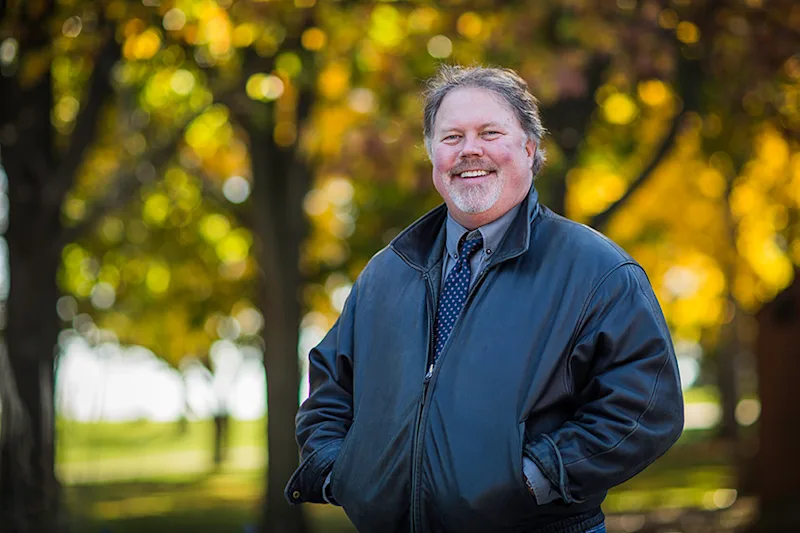A common question around graduation time here at Principia College is what it’s like to be a Christian Scientist out in the “real” world, where you aren’t surrounded by the Principia bubble of protection. I can’t really talk about what it’s like out there after graduation, but I can talk about what I keep in mind every time I leave campus.
No matter where I’m going, what I’m doing, or who I’m going to be around, I’ve found it good to remember that the Science of Christ is always present. We often forget that Christian Science is first and foremost a universal understanding of the way things ARE! This universality allows us to keep Christian Science close to our hearts and present in our minds as we tackle the great adventures that life has to offer. In the Science of Christ, there really is no “out there.”
If you were raised in Christian Science, you are probably familiar with the children’s rhyme, “There is no spot where God is not.” Usually I think about this phrase as a comforting reminder when I’m stuck in bad weather on a mountain, but I’ve started to realize that it applies to everyday difficulties as well. It is not just a way of saying God is here, but a way of saying that we have the ability to use Science to see Him in everything we do.
One of the big attractions for prospective students at Principia College is the fact that it is a dry and “safe” campus. There are few colleges where you can go about your day without being pressured by the majority to get drunk, get high, and get laid. Naturally, one of the big fears is that once you leave this college, you will enter into a world full of people who want you to do the things you came to Prin not to do. It’s important to remember that regardless of the material pictures we try to paint of society, God’s perfect expression is always present. Because of this, we can rest assured that the world is not full of problems and impurities designed to destroy our faith. We can look at the world not as a scary place, but as a perfect playground where we can joyfully express ourselves. We’ll start to feel genuinely excited to get out there!
Another challenge we might worry about facing is how to identify ourselves as Christian Scientists. Some people graduate from Prin ready to go into the practice. Others graduate feeling alienated by their experience at the college. Regardless of our experiences with Principia’s Christian Science community, I believe that we can all identify ourselves as Christian Scientists. Living the Science of Christ can be as slight as a small act of kindness or as monumental as raising the dead. If you’ve done either of these, or any good thing in between, you have expressed Christ, Truth — “the divine message from God to men speaking to the human consciousness” — as it is found in Christian Science (Science and Health 332:10-11).
We shouldn’t be ashamed to be Christian Scientists, nor is our religion something we need to parade around. The Bible says, “Take heed that ye do not your alms before men” (Matt. 6:1). Our identity as Christian Scientists is not based on the legal history of our church, false rumors, chiding jokes, or human opinions. As we search for our own meaning of what it means to be a Christian Scientist, we make spiritual discoveries that cement our individual identification with the Christ.
I don’t think there are two people who look at their relationship with Christian Science in the same way. Because of this, we can celebrate our unique points of view. Some pop culture and even some parts of church culture would have us believe that “unique” is a bad thing. It isn’t. I can’t count the number of times my identity as a Christian Scientist has come up in social situations, dinner parties, coffee houses, and nightclubs. And every time, “cool” has been part of the other person’s response. This tells me that the more I dig into and love what Christian Science means to me individually, the more it will be seen and appreciated by those I meet.
Understanding Christ’s universal reach can help us with big life decisions after graduation as well. There are a few schools of thought about Christian Scientists in the workplace. One is that we should get jobs that “make a difference” and excel so we can be CS role models. Another is that if we truly understand and love our relationship with Christ, Science — or if we are too afraid of life outside a large CS community — we should work for the church. When it comes to choosing a career, I think it comes down to first understanding what our relationship with God is. From that we can open ourselves to the questions, “What would inspire me most?” and “How can I really bless others?” Finding the answers to these questions will lead us to professions that are perfect for us.
Graduation is very close. Some of us who aren’t graduating will be taking summer jobs and internships or catching some much anticipated summer rays. No matter where we find ourselves, we can feel confident about living our lives as Christian Scientists, looking for ways to express the Christ in everything we do. We don’t have to worry about labels, pressures, or challenges. The world is perfect by design, and all we have to do is fearlessly join in the fun of perfection.


